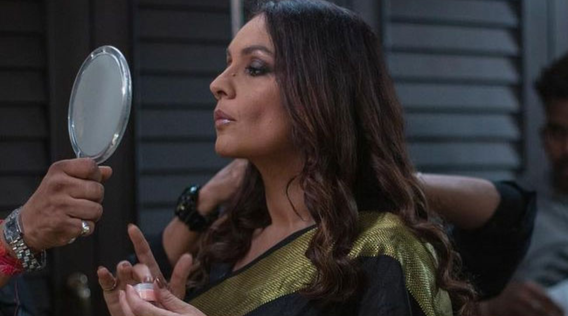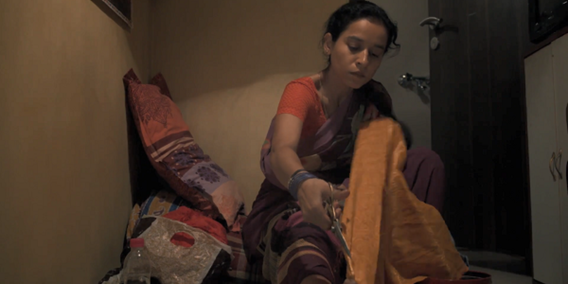(Trigger warning: mentions abuse; suicide; substance abuse)
Patriarchy is a societal system that puts men in a position of power and women in a weaker position, to add to it, it does not consider the fact that various other gender identities exist. It goes without saying that this sort of a society puts a lot of mental and emotional pressure on anyone who does not identify as a man. It further forms a rigid dichotomy of gender roles which are hard to break.
However, in this blog, I want to look at a side of the story that is not spoken about openly and how the cause of all this is also mainly…no surprises there, patriarchy: here we talk about the mental health of men and the pressure of being a “real man.”
“Boys don’t cry.”
“Man up.”
“Jhoru ka gulam.”
“Mard ko dard nahi hota.”
Ever heard of these statements, or rather, taunts?
Everything we say holds meaning to it. Speaking is not just merely stringing a few words together, it is about conveying a message and an emotion. Therefore, when these statements are directed towards boys and men it conveys a meaning which can have a lasting impact on the individual at the receiving end. Patriarchy benefits men in numerous ways provided they live upto the standards that it sets for them. If they move away from these standards in the slightest way, they are greeted with taunts and hostility. This might also be the reason why so many men still try to live up to these norms instead of breaking the mould and talking about the challenges they are facing and getting help for them.
These statements imply that a real man is not allowed to be vulnerable, feel pain or express his emotions. If he does reach the verge of expressing his emotions in front of people, he should immediately shut himself off, otherwise he wouldn’t be considered manly enough. If he respects his wife and pays attention to her opinions, then it would mean that he is giving her more power in their relationship.
Asking a young boy to not wear the colour pink or play with barbie dolls sends across the message that if he does engage in these activities, then he is less “masculine.” It is difficult for people to compliment men saying they are beautiful, for them, men can only be handsome. These notions arise due to the rigid and negative connotations that are around the terms masculinity and femininity.
If a man expresses himself in a feminine way, he will be considered less of a man because people may not accept that masculinity and femininity are in fact, not associated with gender, but are simply ways of expression. The belief system born out of patriarchy affects what men do for a living, what they wear, or how they express themselves. Even the smallest step out of the norm is often met with slurs and offensive statements.
This further encourages toxic masculinity where men are encouraged to suppress their emotions, be dominant and only more aggressive. Men who engage in toxic masculinity consider anyone who doesn’t prescribe to patriarchy as inferior, they might also glorify violence (remember Kabir Singh?). This makes one wonder whether toxic masculinity is trying to aspire to toughness or is it there to preserve the fear of seeming vulnerable?
In essence, patriarchy defines what men should be like, which also puts a lot of pressure on them to conform to being ‘manly’. They do not actively seek out help for their mental and emotional health because they are supposed to be tough and handle everything that comes their way silently. They might have to suffer in silence.
This inability to talk or seek help regarding their struggles might lead them to seek comfort in alcohol and substance use. Granted there may be biological predispositions for it, this feeling of helplessness can be one of the contributors to it.
According to the National Mental Health Survey of 2015-16, prevalence of alcohol use disorders was higher in men (9%), as compared to women (0.5%) and the overall prevalence of mental morbidity was higher among males (13.9%) as compared to females (7.5%). This suppression of emotions, leads them to be vulnerable to mental health concerns such as anxiety, depression, eating disorders and so on.
It is a known fact that patriarchy adversely affects anyone who isn’t a man, but it creates a stifling environment for men as well. And while they’re in this environment, they’re not given the space to seek help, which might lead them to stay in a vicious cycle of distress while not being able to address the root cause – consciously or unconsciously continuing the cycle!
Lastly, what we need to remember is that being a man does not mean that you have to not be vulnerable. Being a man does not always mean that you have to like sports or whiskey. Being a man does not always mean that you have to wear suits and pointed shoes to work. Being a man does not always mean that you need to be the only bread-winner of the family. Being a man does not always have to mean that you have to like a woman and marry her. Sexual preferences, gender identity, career choices and lifestyle choices do not make one less of a man.







![[Men]tal Health](http://www.thethoughtco.in/cdn/shop/articles/Men_tal_Health.png?v=1629793811&width=1400)
